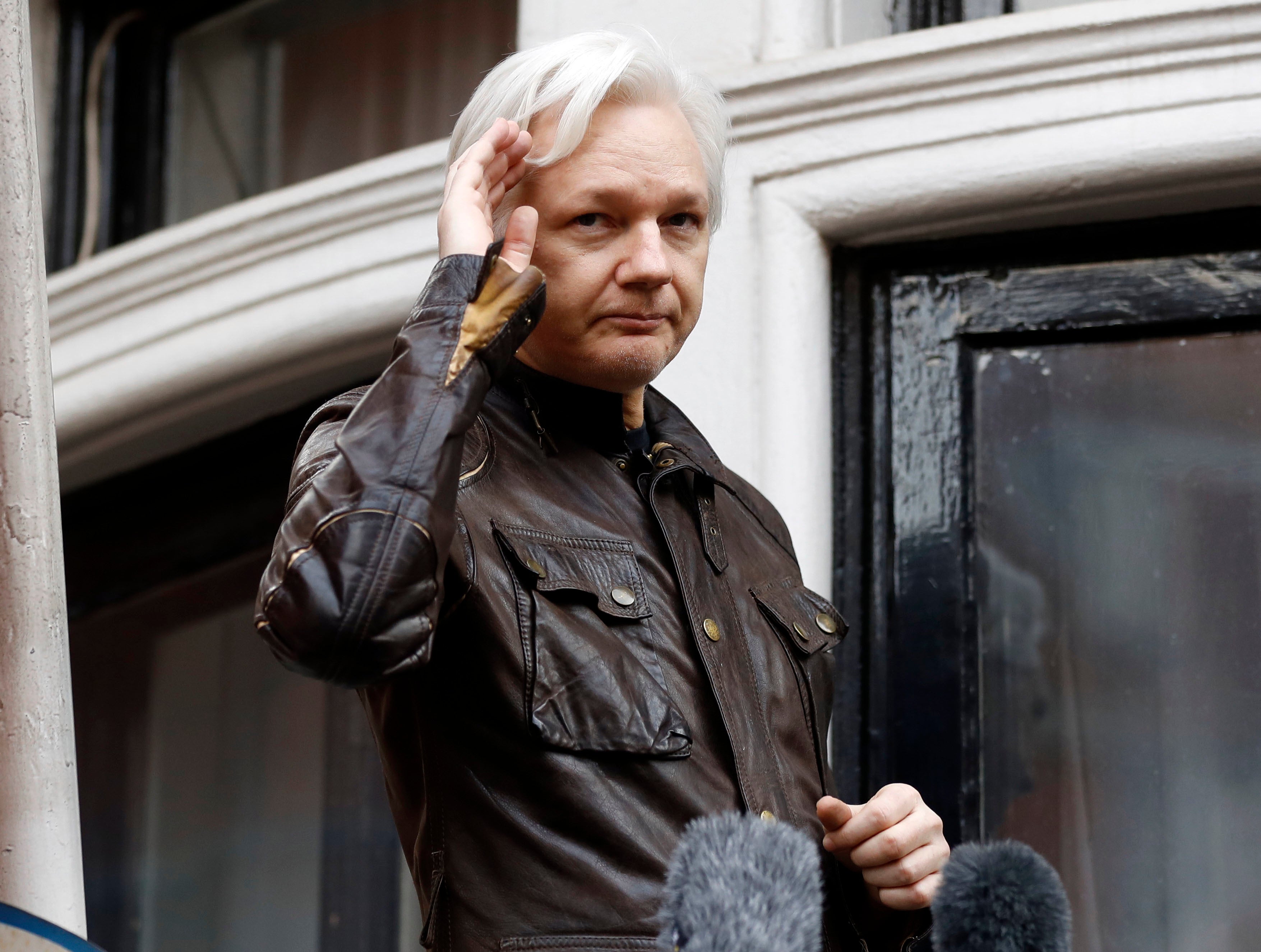Julian Assange denied permission to appeal by UK's top court
Britain’s top court has refused WikiLeaks founder Julian Assange permission to appeal against a decision to extradite him to the U.S. to face spying charges

Your support helps us to tell the story
From reproductive rights to climate change to Big Tech, The Independent is on the ground when the story is developing. Whether it's investigating the financials of Elon Musk's pro-Trump PAC or producing our latest documentary, 'The A Word', which shines a light on the American women fighting for reproductive rights, we know how important it is to parse out the facts from the messaging.
At such a critical moment in US history, we need reporters on the ground. Your donation allows us to keep sending journalists to speak to both sides of the story.
The Independent is trusted by Americans across the entire political spectrum. And unlike many other quality news outlets, we choose not to lock Americans out of our reporting and analysis with paywalls. We believe quality journalism should be available to everyone, paid for by those who can afford it.
Your support makes all the difference.Britain’s top court on Monday refused WikiLeaks founder Julian Assange permission to appeal against a decision to extradite him to the U.S. to face spying charges.
The court said it refused because the case “didn’t raise an arguable point of law.”
Assange has sought for years to avoid a trial in the U.S. on a series of charges related to WikiLeaks’ publication of a huge trove of classified documents more than a decade ago.
A British district court judge had initially rejected a U.S. extradition request on the grounds that Assange was likely to kill himself if held under harsh U.S. prison conditions. U.S. authorities later provided assurances that the WikiLeaks founder wouldn’t face the severe treatment his lawyers said would put his physical and mental health at risk.
In December, the High Court overturned the lower court’s decision, saying that the U.S. promises were enough to guarantee Assange would be treated humanely.
Monday's news narrows Assange's options, but his defense team may still seek to take his case to the European Court of Human Rights or challenge the original judge’s other findings.
Barry Pollack, Assange's U.S.-based lawyer, said Monday that it was “extremely disappointing” that Britain's Supreme Court is unwilling to hear the appeal.
“Mr. Assange will continue the legal process fighting his extradition to the United States to face criminal charges for publishing truthful and newsworthy information,” he said.
American prosecutors say Assange unlawfully helped U.S. Army intelligence analyst Chelsea Manning steal classified diplomatic cables and military files that WikiLeaks later published, putting lives at risk.
But supporters and lawyers for Assange argue that he was acting as a journalist and is entitled to First Amendment protections of freedom of speech for publishing documents that exposed U.S. military wrongdoing in Iraq and Afghanistan.
Assange, 50, has been held at the high-security Belmarsh Prison in London since 2019, when he was arrested for skipping bail during a separate legal battle. Before that, he spent seven years inside the Ecuadorian Embassy in London to avoid extradition to Sweden to face allegations of rape and sexual assault.
Sweden dropped the sex crimes investigations in November 2019 because so much time had elapsed.
___
Eric Tucker contributed to this report from Washington.